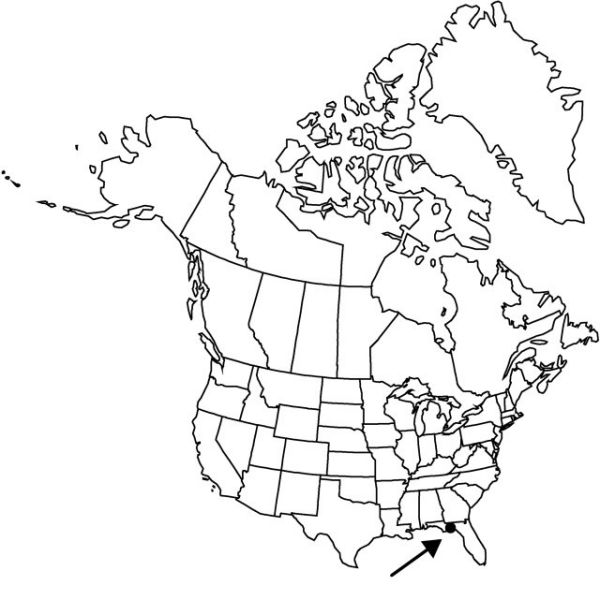Difference between revisions of "Hymenocallis henryae var. glaucifolia"
Herbertia 54: 114. 1999.
Treatment appears in FNA Volume 26. Treatment on page 292.
FNA>Volume Importer |
FNA>Volume Importer |
||
| Line 48: | Line 48: | ||
|publication year=1999 | |publication year=1999 | ||
|special status= | |special status= | ||
| − | |source xml=https://jpend@bitbucket.org/aafc-mbb/fna-data-curation.git/src/ | + | |source xml=https://jpend@bitbucket.org/aafc-mbb/fna-data-curation.git/src/f6b125a955440c0872999024f038d74684f65921/coarse_grained_fna_xml/V26/V26_562.xml |
|genus=Hymenocallis | |genus=Hymenocallis | ||
|species=Hymenocallis henryae | |species=Hymenocallis henryae | ||
Revision as of 20:32, 24 September 2019
Plants often growing in dense clumps. Leaves 4–7, erect, 3–6 dm × 1.9–2.9 cm; blade blue-green in appearance due to glaucousness. Tepals to 16 cm.
Phenology: Flowering late spring.
Habitat: Cypress depressions at edges of pine flatwoods
Elevation: 0 m
Discussion
Of conservation concern.
Hymenocallis henryae var. glaucifolia occurs only in Liberty County and represents an apparent divergence of the populations of H. henryae east of the Apalachicola River. In these plants, a heavy glaucousness causes the surface of the leaves to appear blue-green. This characteristic, along with the clumping habit and tepal length to 16 cm, supports recognition of these Liberty County populations as a distinct variety.
Selected References
None.
Lower Taxa
None.
